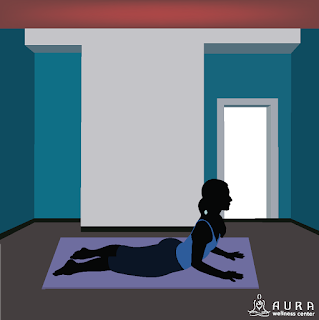By Kathryn Boland
Have you reflected on the
value - no, necessity - of continuing education for yourself as a yoga
instructor? Do you sometimes find it hard to have the time and money for it?
Even so, a certain number of continuing education hours are required to uphold
yoga instructor certification - no exceptions. And we see how we need to keep
studying to keep teaching in fresh and informed ways. Read on for some ways to
fulfill those requirements, for formal credits and informally for yourself,
that are inexpensive and accessible. Happy learning, good luck, and Shanti!
Invest in a studio
membership!
While you can't quite count
practicing at a studio regularly for official continuing education hours, it
can be an invaluable learning tool. First off because it allows you to
consistently take class with a variety of instructors - who all bring unique
knowledge and teaching styles to the table. With an unlimited membership, the
more you go, the better value you get! Memberships range from $80-$130 per
month - not nothing, but much less as a payment at one time than many other
continuing education options.
This frequency and diversity
of classes allows you to adopt and adapt what works for your own teaching, and
leave behind what doesn’t (as well as lead you to think critically about why).
You'll also develop relationships with your teachers, who can then support you
through the trials of your own teaching (while you’re also there to support
them!).
Second, you can keep
cultivating your practice. Like a garden, it cannot grow and flourish if not
nourished. We need healthy, inspired practices in order to authentically guide
our students in their own. It also allows us to have common ground with our
students. What we learn about them, and how we learn to put that to use in
teaching them most fruitfully, is certainly a kind of continuing education -
and an important one!
Work it all out in
workshops!
Almost without exception,
reputable yoga studios offer workshops. Depending upon factors like materials
used (e.g. workbooks, special equipment), length (typically anywhere from two
hours to entire weekends), and credentials of the teacher, these range in cost
from roughly $20-$200. On the lower end, you can gain invaluable new learning
for less than restaurant lunch!
Another advantage of
workshops is the specificity; you can immerse yourself in a particular area of
practice or instruction, with a teacher who is an expert in that area (why he
or she chose to offer the workshop in the particular area, most often). This is
a plus especially if you find that a particular area of your knowledge is
lacking or needs a refresher. Or perhaps you're really interested in a particular
area, and would like to incorporate it into your teaching more and/or start
building a niche there - but you need more know-how first.
A workshop can be a great
kick starter in any of those cases! You might also be able to get continuing
education credits for workshops. You can find that out through the event’s
promotional literature, or you can also ask the workshop
teacher/organizer/hosting studio official. Keep an eye out for workshops that
spark your interest (promoted or on studio websites “Workshops and Events”
page). Or express your interest in learning more in depth about particular
areas - to officials at your studio or your favorite teachers. These can be
incredibly beneficial, enlightening, and game-changing opportunities - so try
not to just let them pass you by!
Explore all that's
online.
There’s a massive amount of
free information on yoga instruction and practice out in there the virtual
world. All accessible at the click of a mouse or smartphone keypad. Not all of
it is informed and well-expressed, but it's there from which to probe and
gather nuggets of valuable information. Being discerning about what we read and
believe is a professional skillset that, just like any other, takes practice.
While often hazy and
undefined amounts of time browsing online yoga resources (checking email and
social media at least a few times, anyone?) cannot officially count for
continuing education credits, through that browsing you might just find
opportunities for that which are accessible and affordable for you. Some of
these might count for CE credits!
As a matter of fact, that is
how I found out about Aura Wellness Center’s independent study certification
programs. Without that, I don't know if I ever could have been able to afford
(and afford taking the time away from paid work for) yoga instructor
certification. You can just never know how life changing a Google search can
turn out to be. Happy internet surfing, and may the learning roll on!
Kathryn Boland is a Yoga teacher and a graduate of the Yoga teacher training program at: Aura Wellness Center in, Attleboro, MA.





No comments:
Post a Comment